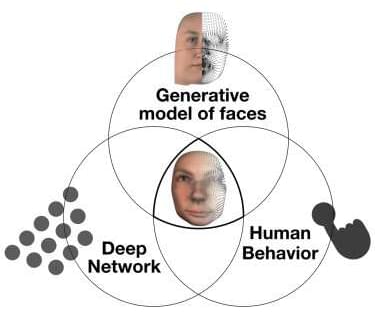New research, published in the journal Patterns and led by the University of Glasgow’s School of Psychology and Neuroscience, uses 3D modeling to analyze the way Deep Neural Networks—part of the broader family of machine learning—process information, to visualize how their information processing matches that of humans.
It is hoped this new work will pave the way for the creation of more dependable AI technology that will process information like humans and make errors that we can understand and predict.
One of the challenges still facing AI development is how to better understand the process of machine thinking, and whether it matches how humans process information, in order to ensure accuracy. Deep Neural Networks are often presented as the current best model of human decision-making behavior, achieving or even exceeding human performance in some tasks. However, even deceptively simple visual discrimination tasks can reveal clear inconsistencies and errors from the AI models, when compared to humans.

That’s cute!